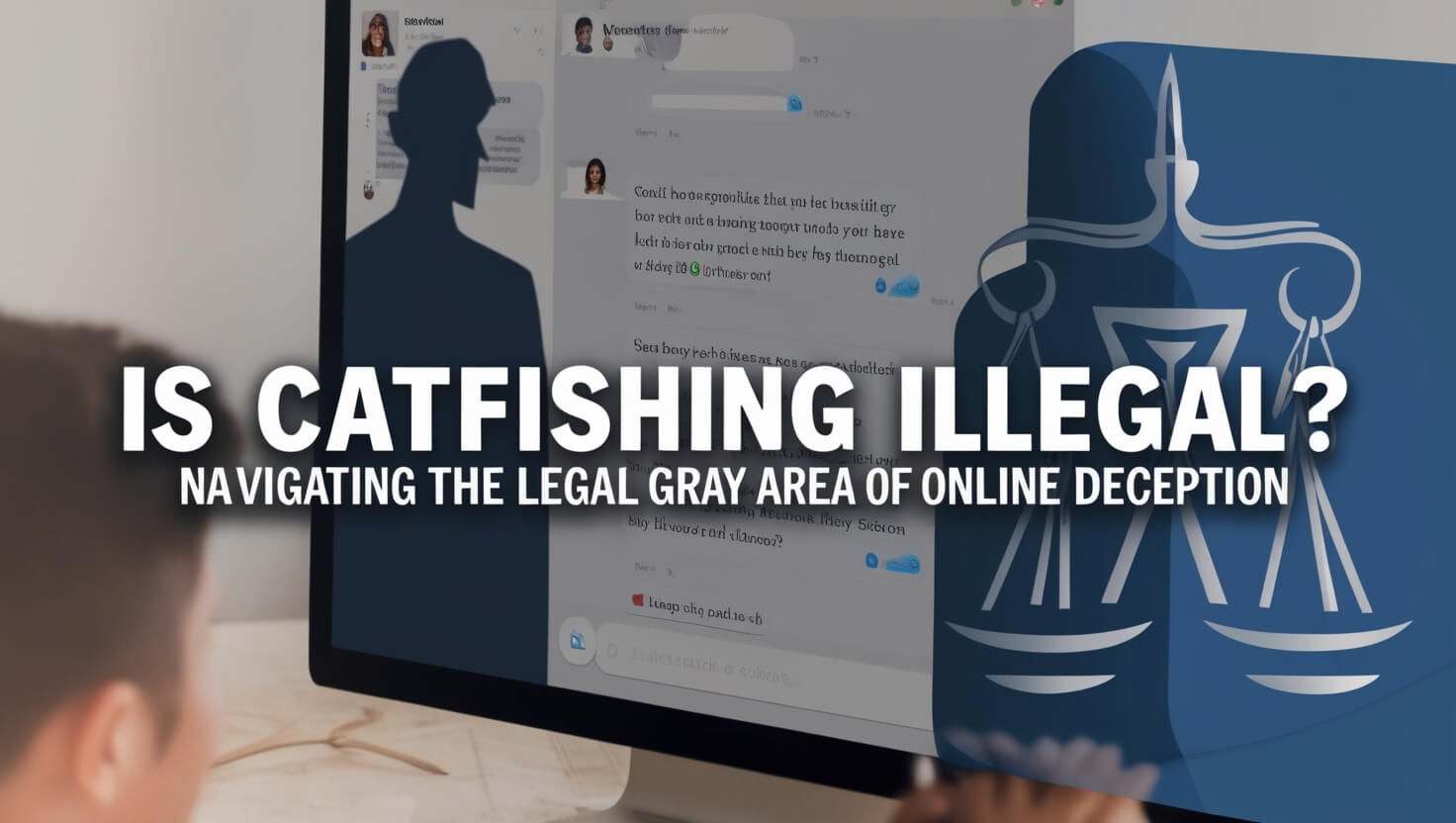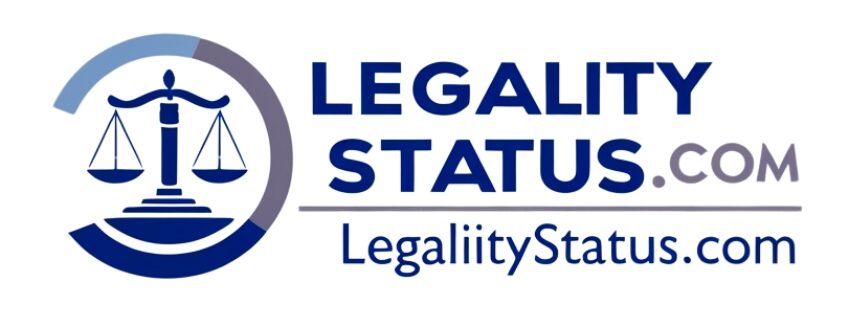Is Catfishing Illegal? Navigating the Legal Gray Area of Online Deception

Catfishing isn’t explicitly illegal in most places, but many actions associated with it can break the law. This online deception tactic has gained notoriety in recent years, leaving many wondering about its legal status. Let’s explore the complex world of catfishing and its legal implications.
What is Catfishing?
Catfishing has become a buzzword in the digital age. But what exactly does it mean?
Definition and Origin of the Term
Catfishing refers to creating a fake online persona to trick someone into a relationship. The term gained popularity after the 2010 documentary “Catfish” and the subsequent MTV show.
Common Catfishing Techniques
Catfishers use various methods to deceive their targets:
- Stolen photos from social media
- Fake profiles on dating sites
- Elaborate backstories and lies
- Emotional manipulation
Motivations Behind Catfishing
People catfish for different reasons:
- Loneliness
- Revenge
- Financial gain
- Curiosity or boredom
Regardless of the motive, catfishing can cause serious harm to victims.
The Legal Status of Catfishing
The legality of catfishing isn’t black and white. It often falls into a gray area of the law.
Catfishing and Existing Laws
While no specific “catfishing law” exists in most places, several existing laws can apply:
- Fraud
- Identity theft
- Harassment
- Stalking
Challenges in Prosecuting Catfishing Cases
Prosecuting catfishing cases can be tricky. Prosecutors face several hurdles:
- Proving intent to harm
- Lack of specific legislation
- Jurisdictional issues with online crimes
Recent Legal Developments
Some regions are considering new laws to address catfishing. For example, the state of New South Wales in Australia is exploring “coercive control” legislation that could apply to some catfishing cases.
When Catfishing Crosses Legal Boundaries
Catfishing becomes illegal when it involves other criminal activities.
Fraud and Financial Scams
If a catfisher asks for money under false pretenses, it’s fraud. This is one of the most common ways catfishing becomes a crime.
Identity Theft
Using someone else’s photos or personal information without consent can be identity theft. This is a serious crime in many jurisdictions.
Harassment and Stalking
Persistent unwanted contact or threats from a catfisher can lead to harassment or stalking charges.
Crimes Involving Minors
Catfishing becomes especially serious when it targets minors. This can lead to charges related to:
- Child exploitation
- Grooming
- Possession of child abuse material
Notable Catfishing Cases and Their Legal Outcomes
Several high-profile cases have shaped public understanding of catfishing and its legal implications.
The Manti Te’o Scandal
In 2013, college football star Manti Te’o fell victim to a catfishing scheme. While embarrassing, no charges were filed in this case.
The Renae Marsden Case
This tragic Australian case ended in suicide. While the catfisher wasn’t charged, it sparked discussions about new laws.
United States v. Drew
This 2008 case involved the suicide of a teenager after online bullying. The perpetrator was initially convicted, but the verdict was overturned on appeal.
Legal Consequences of Catfishing
When catfishing does break the law, consequences can be severe.
Civil Lawsuits
Victims may sue catfishers for:
- Emotional distress
- Financial losses
- Defamation
Criminal Charges
Depending on the specific actions, criminal charges might include:
- Wire fraud
- Identity theft
- Stalking
- Sexual offenses (if minors are involved)
Potential Penalties
Penalties vary widely based on the specific crimes committed:
- Fines
- Probation
- Jail time
- Sex offender registration (in cases involving minors)
Preventing Catfishing: Legal and Personal Safeguards
Both legal systems and individuals play a role in preventing catfishing.
Online Platform Policies
Many social media and dating sites have policies against fake profiles. They may:
- Use AI to detect fake accounts
- Allow users to report suspicious activity
- Verify user identities
Education and Awareness
Knowledge is power in preventing catfishing:
- Schools teaching online safety
- Public awareness campaigns
- Tips for spotting fake profiles
Legal Protections for Victims
Some jurisdictions offer legal protections for catfishing victims:
- Restraining orders
- Victim compensation programs
- Support services
The Debate Over Specific Catfishing Laws
There’s ongoing debate about whether we need specific laws against catfishing.
Arguments for New Legislation
Supporters of new laws argue:
- Current laws don’t cover all catfishing harms
- Specific laws would deter potential catfishers
- Clear legislation would make prosecution easier
Counterarguments and Concerns
Critics raise several points:
- Difficulty in defining catfishing legally
- Potential infringement on free speech
- Challenges in enforcing online behavior laws
Proposed Legal Solutions
Some proposed solutions include:
- Expanding fraud laws to cover emotional manipulation
- Creating new offenses for online impersonation
- Strengthening penalties for crimes committed through catfishing
International Perspectives on Catfishing Laws
Catfishing is a global issue, and different countries approach it differently.
Catfishing Legislation Around the World
Some countries have taken steps to address catfishing:
- UK: Considering “digital harm” laws
- Canada: Expanded cyberbullying legislation
- Japan: Strict laws against online impersonation
Cross-Border Catfishing Cases
International catfishing cases present unique challenges:
- Jurisdictional issues
- Differences in legal definitions
- Challenges in extradition
The Future of Catfishing and the Law
As technology evolves, so too must our legal approach to catfishing.
Emerging Technologies and New Challenges
New tech brings new risks:
- Deepfakes making fake profiles more convincing
- VR and AR creating new spaces for deception
- AI chatbots blurring lines of online identity
Potential Legal Reforms
Future legal changes might include:
- International cooperation on online crimes
- New categories of cyber offenses
- Stricter identity verification for online platforms
Protecting Yourself from Catfishing
While legal protections are important, personal vigilance is key.
Red Flags to Watch For
Be alert for these warning signs:
- Refusal to video chat
- Inconsistent stories
- Requests for money or personal information
- Profiles that seem too good to be true
Steps to Take if You’ve Been Catfished
If you think you’re a victim:
- Cut off contact immediately
- Report the profile to the platform
- Document all interactions
- Consider reporting to law enforcement
- Seek support from friends, family, or professionals
Final Verdict: The Complex Legality of Catfishing
Catfishing inhabits a complex legal space. While not explicitly illegal everywhere, many actions associated with catfishing can break various laws. As online interactions become more central to our lives, legal systems worldwide are grappling with how to address this modern form of deception.
Remember, the best defense against catfishing is awareness and caution. Stay informed, trust your instincts, and don’t be afraid to ask for help if something doesn’t feel right online. The digital world offers amazing opportunities for connection, but it’s up to us to navigate it safely and responsibly.





